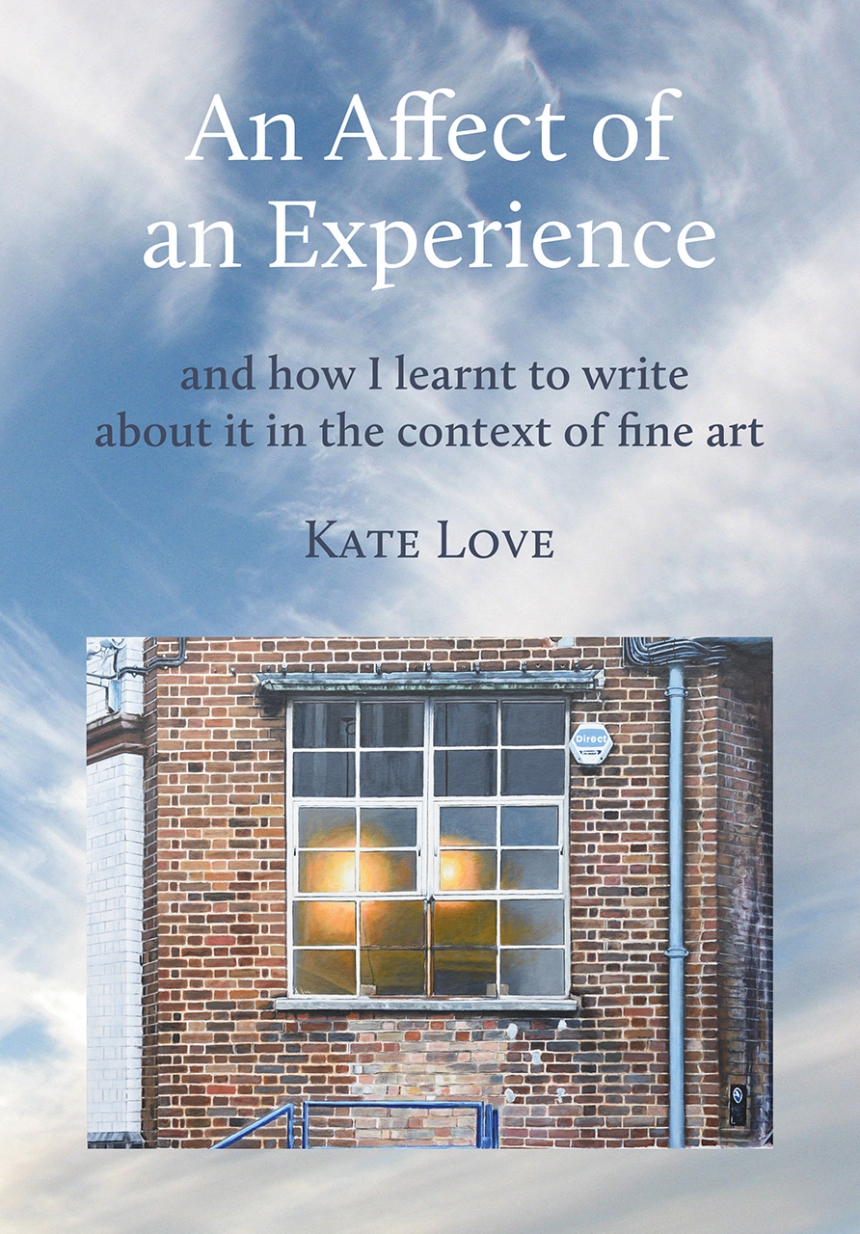An Affect of an Experience
And How I Learned to Write About It in the Context of Fine Art
9781789382136
Distributed for Intellect Ltd
An Affect of an Experience
And How I Learned to Write About It in the Context of Fine Art
Despite the contemporary trend to focus on personal experience in art and writing, there is very little critical analysis of the concept of experience within fine art. The overarching conceptual aim of the book is to examine the concept of experience as both content and as interpretative register in the context of fine art. It explores the reasons why experience, when compared to other modes of consciousness—such as understanding, knowing, perceiving, or recognizing—is more aligned with the notion of actuality and thus more likely to be viewed as authentic. It then discusses the idea of writing about experience as a practice in fine art—the idea that writing can be understood as a practice like painting, sculpture, video, etc.—and explores a viable methodology for the art writing practice.
The book seeks to provide a more fluid interpretation of experience. In so doing, it explores the following questions: Why does the reading of experience as self-presence predominate? What is the status and value of experience as evidence? How is experience written and seen? In exploring these questions, Kate Love creates a workable strategy for writing about experience.
The book seeks to provide a more fluid interpretation of experience. In so doing, it explores the following questions: Why does the reading of experience as self-presence predominate? What is the status and value of experience as evidence? How is experience written and seen? In exploring these questions, Kate Love creates a workable strategy for writing about experience.
350 pages | 42 halftones | 6.69 x 9.61 | © 2021
Art: Art Criticism
Language and Linguistics: General Language and Linguistics
Table of Contents
1 Introduction to the Materiality of Writing as a Practice
2 Introduction to the Concept of Experience
3 Problems with Experience as Self-Presence
4 An Examination of the Idea of the Subject as the Source of Experience
5 Writing to Meet the Affect of the Antagonism as Experienced in the Hospital off the City Road
6 Hovering Words: Part 1 Speaking Experience
7 Hovering Words: Part 2 Writing Experience
8 Experience and Representation
9 Experience as a Relation that is In and At the Limits of Language
10 To Test the Above: To Look at the Separation of Experience and Language
11 Beginnings of a More Adequate Interpretation of Experience: Separation of Experience and Language (Under Erasure)
12 To Get to Some Sort of Ending: Actually More Precisely the Gradual Realisation that there is No Real Beginning, Middle or End to this Research
Bibliography
2 Introduction to the Concept of Experience
3 Problems with Experience as Self-Presence
4 An Examination of the Idea of the Subject as the Source of Experience
5 Writing to Meet the Affect of the Antagonism as Experienced in the Hospital off the City Road
6 Hovering Words: Part 1 Speaking Experience
7 Hovering Words: Part 2 Writing Experience
8 Experience and Representation
9 Experience as a Relation that is In and At the Limits of Language
10 To Test the Above: To Look at the Separation of Experience and Language
11 Beginnings of a More Adequate Interpretation of Experience: Separation of Experience and Language (Under Erasure)
12 To Get to Some Sort of Ending: Actually More Precisely the Gradual Realisation that there is No Real Beginning, Middle or End to this Research
Bibliography

